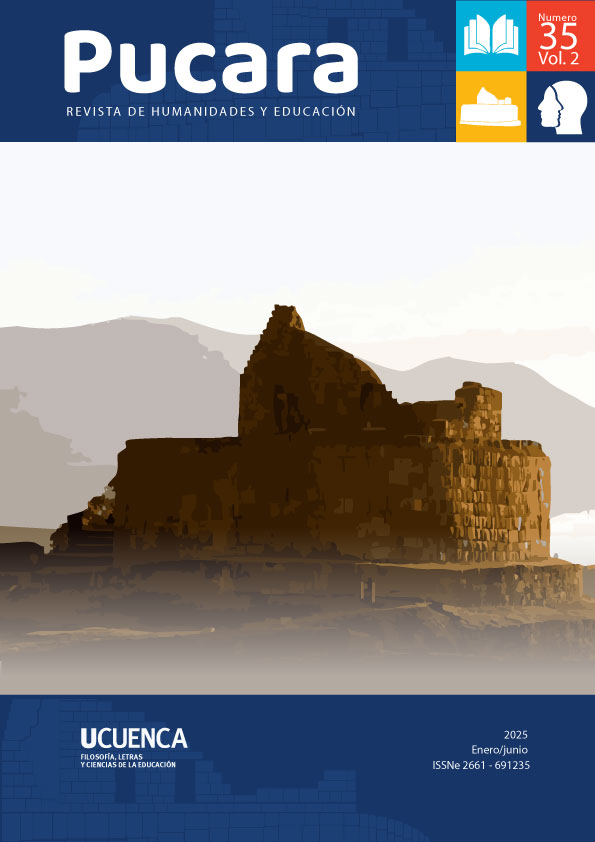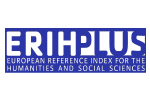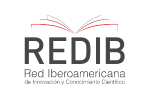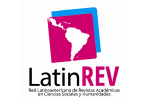Pucara y su compromiso con las Humanidades y la educación
DOI:
https://doi.org/10.18537/puc.35.02.01Palabras clave:
Pucara, educación, humanidadesResumen
La revista Pucara, desde su fundación, ha reflejado la misión humanista de la Universidad, abordando las tensiones sociales, culturales y políticas de América Latina. Las Humanidades, fundamentales para la educación y la dignidad humana, enfrentan retos ante la creciente tecnocratización de las universidades y la mercantilización del conocimiento. Este enfoque reduce al individuo a un consumidor irreflexivo, debilitando el pensamiento crítico y la ciudadanía. Inspirada por voces como Iván Carvajal, Boaventura de Sousa Santos y Martha Nussbaum, Pucara defiende un modelo educativo que promueva la reflexión ética, el diálogo intercultural y la lucha por una sociedad más justa. Además, enfatiza la importancia de las epistemologías del sur y el conocimiento plural para contrarrestar las lógicas hegemónicas occidentales. En tiempos de crisis, Pucara asume el desafío de revitalizar las Humanidades como herramientas para formar ciudadanos críticos, éticos y comprometidos con la transformación social y el desarrollo sostenible.
Descargas
Citas
Appleby J., Hunt, L. y Jacob, M. (1999). La verdad sobre la historia. Andrés Bello.
Arocena, R. y Sutz, J. (2016). Universidades para el desarrollo. Unesco.
Astudillo, A. (2019). “Potenciación de la condición humana: tarea de las humanidades en la educación superior”, en Pucara, revista de Humanidades de la Facultad de Filosofía, Letras y Ciencias de la Educación de la Universidad de Cuenca, N.° 30 (23-38). Disponible en: https://publicaciones.ucuenca.edu.ec/ojs/index.php/pucara/article/view/2990/2392
Ayestarán, I.; Márquez-Fernández, Á. (2011). Pensamiento abismal y ecología de saberes ante la ecuación de la modernidad. En homenaje a la obra de Boaventura de Sousa Santos. Utopía y Praxis Latinoamericana, vol. 16, núm. 54, julio-septiembre, 2011, pp. 7-15. Disponible en: https://www.redalyc.org/pdf/279/27920007002.pdf
Bauman, Z. (2005). Vida líquida. Paidós.
De Sousa Santos, B. (2010). Descolonizar el saber, reinventar el poder. Ediciones Trilce y Universidad de la República.
Carvajal, Iván (1977). “A manera de presentación: ¿para qué PUCARA?, en Pucara, revista de Humanidades de la Facultad de Filosofía, Letras y Ciencias de la Educación de la Universidad de Cuenca, N.° 1 (5-16). Disponible en: https://publicaciones.ucuenca.edu.ec/ojs/index.php/pucara/issue/view/319/197
Cerutti-Guldberg, H. (2014). “Las humanidades en las academias latinoamericanas”, Revista Nuevo Humanismo. Vol. 2(1), enero-junio, 11-22.
Chomsky, N. (2023). “Noam Chomsky: La falsa promesa del ChatGPT”. Este artículo apareció originalmente en The New York Times. Traducción actual: https://es-us.noticias.yahoo.com/opinión-noamchomsky-falsa-promesa-231032168.html c.2023 The New York Times Company https://www.nytimes.com/2023/03/08/opinion/noam-chomskychatgpt-ai.html
Cifuentes Medina, J. E. (2014) “El papel de las humanidades en la educación superior en el siglo XXI”. Quaestiones Disputatae, N.° 15, julio-diciembre, 101-112.
Curtoni, Rafael Pedro (2008). Acerca de las consecuencias sociales de la arqueología. Epistemología y política de la práctica. Comechingonia 11, 29-45. Disponible en: https://revistas.unc.edu.ar/index.php/comechingonia/article/view/17867
Haber, A. (2016). Arqueología indisciplinada y decolonización del conocimiento. En Shepherd, Nick; Gnecco, Cristóbal; Haber, Alejandro; Arqueología y decolonialidad; Ediciones del Signo; 2016; pp. 123-166. Disponible en: https://www.unicauca.edu.co/fchs/sites/default/files/SHEPHERD-GNECCO-HABER-ARQUEOLOG%C3%8DA%20Y%20DECOLONIALIDAD.pdf
Malo González, H. (1996). “La Universidad, sede de la razón”, en Pensamiento universitario. Corporación Editora Nacional.
Meneses, M.P., Nunes, J. A., Añón, C. L., Bonet, A. A., y Gomes, N. L. (2019). Las ecologías de saberes. En Boaventura de Sousa Santos: Construyendo las Epistemologías del Sur para un pensamiento alternativo de alternativas, Volumen I (pp. 229-266). CLACSO. Disponible en: https://www.boaventuradesousasantos.pt/media/Antologia_Boaventura_Vol1.pdf
Morin, E. (2008). La mente bien ordenada. Los desafíos del pensamiento en el nuevo milenio. México: Siglo XXI Editores.
Nussbaum, M. (2001). El cultivo de la humanidad. Una defensa clásica de la reforma en la educación liberal. Paidós.
¬¬¬¬____________. (2012). Sin fines de lucro. Por qué la democracia necesita de las humanidades. Katz Editores.
Salerno, V. 2012. Pensar la arqueología desde el sur. En Complutum, Vol. 23 (2): 191-203. Disponible en: https://www.researchgate.net/publication/274565640_Pensar_la_arqueologia_desde_el_Sur
UNESCO (2015). “Objetivos de Desarrollo Sostenible. En Agenda 2030, Naciones Unidas-Ecuador. Disponible en: https://ecuador.un.org/es/sdgs/4
Publicado
Cómo citar
Número
Sección
Licencia
Derechos de autor 2024 Manuel Villavicencio

Esta obra está bajo una licencia internacional Creative Commons Atribución-NoComercial-CompartirIgual 4.0.
Copyright © Autors

Usted es libre de:
 |
Compartir — compartir y redistribuir el material publicado en cualquier medio o formato. |
 |
Adaptar — combinar, transformar y construir sobre el material para cualquier propósito, incluso comercialmente. |
Bajo las siguientes condiciones:
 |
Atribución — Debe otorgar el crédito correspondiente, proporcionar un enlace a la licencia e indicar si se realizaron cambios. Puede hacerlo de cualquier manera razonable, pero de ninguna manera que sugiera que el licenciador lo respalda a usted o a su uso. |
| No comercial — No puede utilizar el material con fines comerciales. | |
| Compartir Igual— si remezcla, transforma o desarrolla el material, debe distribuir sus contribuciones bajo la misma licencia que el original. |
| Sin restricciones adicionales: no puede aplicar términos legales o medidas tecnológicas que restrinjan legalmente a otros a hacer cualquier cosa que permita la licencia. |
Mayor información sobre este acuerdo de autoría y licencia, transferencia de derechos o solicitudes de reproducción, pueden ser consultados en este enlace.












